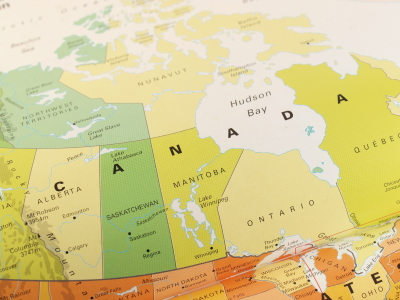
I always like reading about other countries' approaches to immigration problems — not out of misplaced schadenfreude, although I'll admit to having experienced it sometimes when a country gets its comeuppance through enactment of a patently stupid policy — but mostly because it shines a light on experiences often shared among a range of those countries, usually the "developed world", which are forced to confront problems in their immigration laws and systems. Sometimes the solutions are vastly superior to ours, sometimes not.
Canada's immigration issues have been in the forefront of many Canadians' minds of late, particularly with their discovery that our shared, generally peaceful, but nonetheless porous border can work against them when aliens such as Haitians or Somalis start flowing northward from the United States and claiming asylum. The Canadians, it seems, have begun to get a taste of the unsatisfying flavor of mass migration, and they don't know quite yet how to deal with it.
This renewed attention toward all things immigration has led the Canadian Broadcasting Corporation (CBC) to publish an article online, "15,000 on Canada's deportation list, but some 'uncooperative' countries won't take their citizens back".
We share a similar problem (as is noted in the article), although speaking from experience, if there were only 15,000 aliens under orders of removal who had not been repatriated, there would likely be dancing in the halls of Homeland Security headquarters. In the United States, that figure is in the hundreds of thousands, and it is easily in the tens of thousands for those who cannot be removed because their country refuses to cooperate by providing the travel documents needed for repatriation.
I suspect, though, that the list of countries that are refusing to accept repatriation of their citizens would be disturbingly similar to our government's list. That is because those countries are more or less recalcitrant to everyone when it comes to taking back their problem children — especially when many of them have been ordered deported due to criminal convictions.
Speaking in a detached kind of way, one can understand that a nation would be less than enthused about accepting criminals into its midst. That doesn't change the fact, though, that if citizenship is to mean anything at any time, anywhere, it is a near-absolute certainty that countries must take responsibility for their own in international and bilateral relations with other countries.
In the United States, we have finally started to push this issue after decades of letting our "stripy-pants cookie pushers" (as I once heard our State Department diplomats infamously described) mush the issue around with various governments with no effect whatever. As a consequence, several nations have been put on notice that they will not be receiving visas for various classes of persons. The process has been done in a public manner; partly perhaps as a "naming and shaming" device, but mostly because the public has a right to know why certain aliens, especially if they are among the criminal classes, aren't being deported.
I was interested, though, to see that in Canada, they have taken a different tack:
The Canada Border Services Agency (CBSA) confirms some countries either delay or refuse to repatriate their citizens who are here illegally, but will not divulge which ones as it might "impact diplomatic negotiations. ... Canada's no-naming approach is in stark contrast to the U.S., which publicly identifies, and in some cases, sanctions, countries that delay or refuse to repatriate their citizens.
I suspect that over time, they may discover that the discreet approach is pretty much a non-starter. Recalcitrant countries are generally that way when they are autocratic, and don't respond to much except in the way of tit-for-tat exchanges. The ruling elites begin to get it when their wives, families, mistresses, or whomever, can't come to the United States to shop and engage in leisure time at their favored American destinations.
And, at least one Canadian also believes that the Canadian public has a right to know that certain countries use their relationships as a one-way street, as is evidenced by these remarks in the article:
Brian Lee Crowley, managing director of the Macdonald-Laurier Institute, believes Canada should be pushing back hard against nations which aren't "playing by the rules." He said transparency is key to retaining integrity and public confidence in the immigration system.
As the Aussies would say, "Good on ya, mate!" Contrast that with this utter nonsense:
Aris Daghighian, an immigration lawyer and executive member of the Canadian Association of Refugee Lawyers, called it "frankly offensive" to name specific countries because it would stigmatize all members of that population.
What is frankly offensive is that nations would shirk their responsibilities to their own citizens so egregiously.
It is equally offensive for an immigration lawyer to try to sidestep that cardinal fact by trying to drop the cloak of political correctness over what is fundamentally a violation of international law. Does anyone catch a whiff of hypocrisy swirling in the air here?
